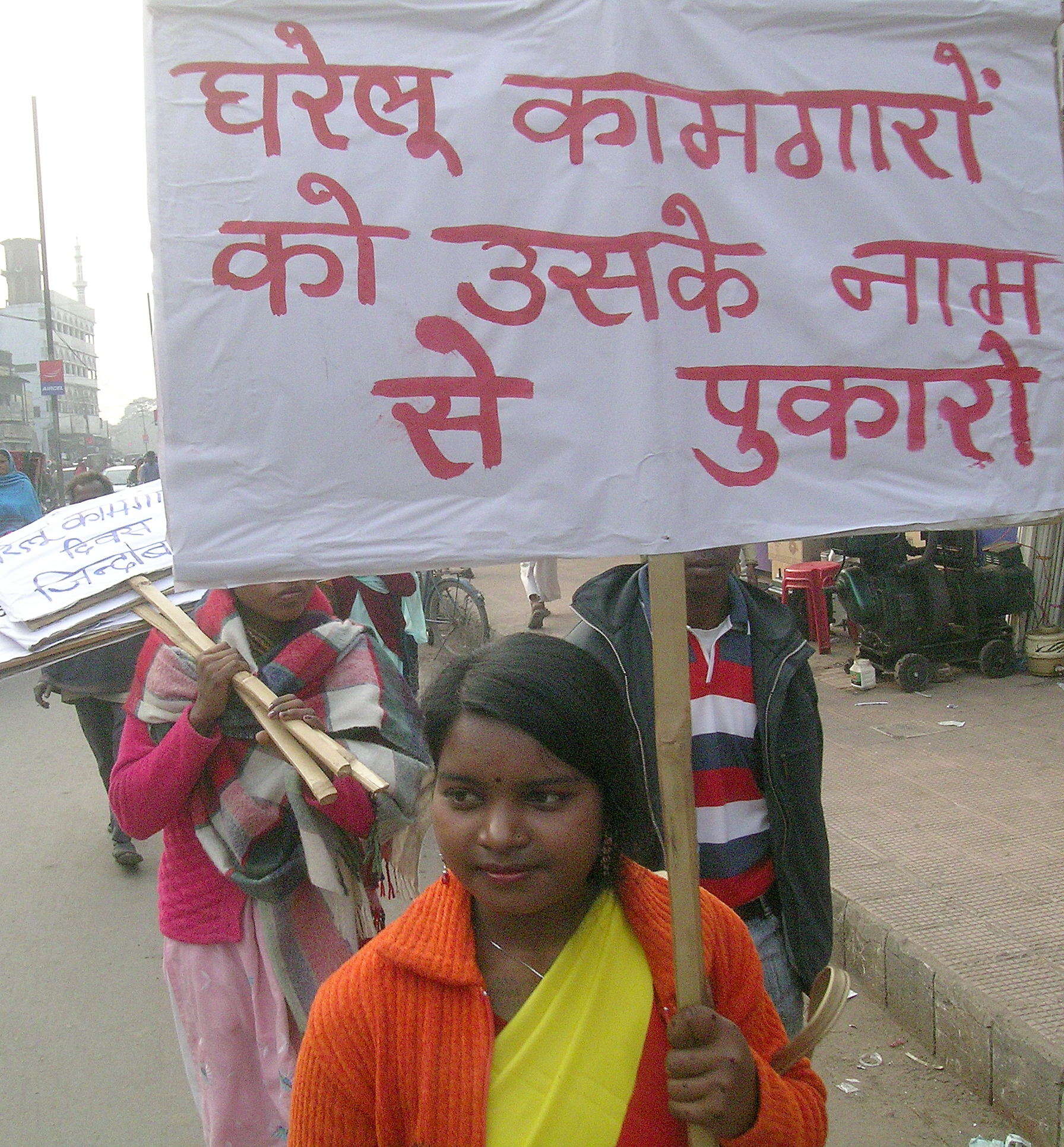Domestic workers took out a rally on the occasion of International Domestic Worker Day in Patna on Friday. pic by–k m sharma
Sofa to lift, RWA curbs on service staff smack of deep-rooted bias
A few days ago, a Twitter post about a proposal made to the Residents’ Welfare Association (RWA) of a housing society in Bengaluru made headlines. The proposal noted how residents “can feel uncomfortable when being surrounded by maids” in the common area and also decried the use of sofas at the building reception by “cooks, carpenters, plumbers”. “Most of us,” it blithely stated, “have probably stopped sitting on the sofas by now.” A Twitter user would later point out that the post was by a ‘single individual’ and not an RWA notice, but this clarification doesn’t change the fact that such instances of deep-rooted bias are on the rise in affluent residential societies.
The ‘service lift’ is now a common feature in most high-rises, and the building security is quick to draw the lakshman rekha for drivers, delivery persons and domestic help using it. Indeed, discriminatory practices, such as restricting access to parks, gazebos, etc are so rampant as to have become the norm in urban gated societies.
In a bid for legitimacy, these prejudicial rules are often justified on the grounds of ‘security’ or ‘convenience’. The widespread paranoia in the early days of the Covid-19 pandemic, for instance, had brought out the classism of RWAs which imposed various directives on domestic staff on the pretext of hygiene and sanitisation. Ironically, at the time, it was the staff that was more at risk of being infected by their globe-trotting employers.
These persistent attempts to police the movement of domestic workers within housing societies stem from an urge to erase any jarring reminders of inequality in our utopian islands of prosperity. This urge is physically manifested in the high compound walls that surround our apartment blocks — stark on the outside but aesthetically trellised with exotic plants within — which serve to hide the adjoining slums from our sight. In a country where the top 10% households own 65% of the total wealth (according to the World Inequality Report 2022), owning (or even renting) a home in these luxury estates is a privilege only a few can afford. Having gained entry, we rely on the walls — and the rules and bye-laws of our RWAs — to preserve exclusivity.
The paradox lies in the fact that we cannot afford to make this exclusivity absolute because the people we do not want ‘loitering’ in our gardens are the very people we rely on to keep our homes clean, cook our food, walk our dogs, drive our cars, and retain order in our lives. And so, we make grudging concessions to allow access while constantly regulating the spaces they can inhabit and even the economic value we ascribe to their services. Evidence of the latter can be found in the ‘rate cards’ for household work that are circulated on RWA WhatsApp groups to ensure so-called transparency for employers. The truth of the matter is that these employers are likely to spend more on a single meal in a fine-dining restaurant than the prescribed salary their help can earn in a month. A recent report about a study by the Indian Institute of Human Settlements noted that “domestic workers in Bengaluru and Chennai would have to work in six low-paying households to earn the state minimum wage”.
Every time reports about discrimination against domestic workers surface, we express our outrage and then quieten down — until the next incident. Perhaps it is time we began to examine the role we can play in breaking this cycle. There is little institutional support available to domestic workers, as the legal framework governing the informal domestic work sector is practically non-existent. Domestic workers fall outside the purview of the traditionally understood scope of ‘workmen’ under labour laws and only a handful of states cover them under the Minimum Wages Act. Also, the National Policy for Domestic Workers envisaged in 2019 to include them under existing laws is yet to be implemented. In this environment, the biased actions of RWAs add to their woes.
A few years ago, the apartment complex I lived in considered
introducing a rule mandating that staff members should only access
elevators from the basement parking lot; what was left unsaid was that
their presence in the swanky glass-and-marble lobby irked certain
residents. Thankfully, most of the other residents immediately shot down
this suggestion and the idea was dropped. In the Bengaluru RWA incident
as well, a Twitter user stated that more than 20 people had “pushed
back” on the proposal to restrict common area access. If this were
indeed the case, it is heartening.
It is convenient to ignore prejudices that do not affect us, if simply
to avoid conflict with the housing society overlords. But this
indifference comes at a cost. It is only by protesting against unjust
diktats, that we can stop them from perpetuating their problematic
worldview and perhaps, even change RWAs to being an agency for good.
